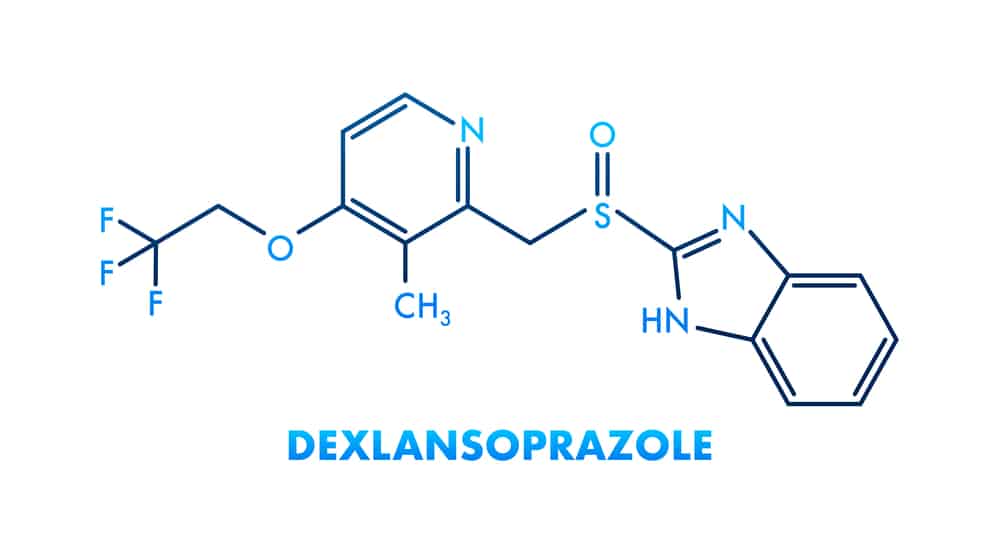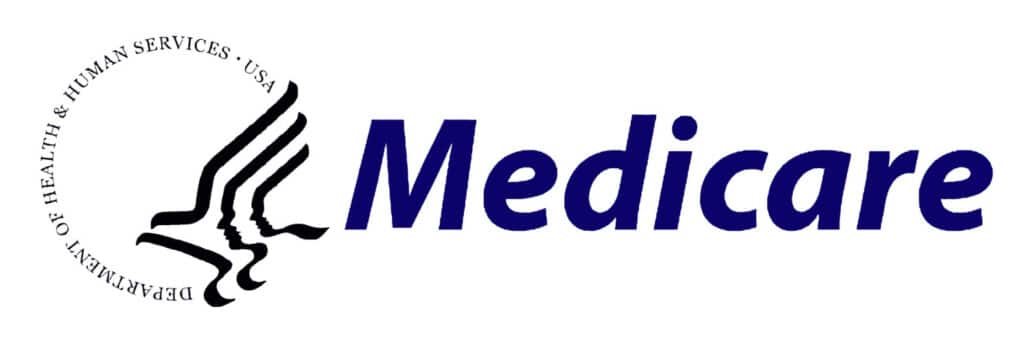Call to speak to a Licensed Insurance Agent
Mon - Fri 8am – 8pm EST; Sat - Sun 10am - 6pm EST

Below we look at whether or not Medicare covers Dexilant. The answer, in a nutshell, is usually no. Typically, Medicare doesn’t take care of the costs associated with Dexilant (dexlansoprazole).

However, there are specific scenarios where this might differ. Below you’ll learn about situations when Medicare could potentially cover Dexilant costs.
If you need Dexilant and are on Medicare, it can be confusing to figure out coverage. Understanding coverage details is key as you try to manage your healthcare costs.
So if you’re wondering about Medicare coverage for Dexilant, you’re in the right spot. We’ve got the info you’re looking for.
Here’s a sneak peek into what lies ahead:
Let’s dig in!
The short answer is no. In most cases, Medicare will not cover the cost of Dexilant. That said, there may be some situations where you can get these costs covered. Below we’ll take a closer look at this to see when you might be able to get Medicare to pay for your Dexilant.

Original Medicare (Medicare Part A and Part B) does not provide coverage for Dexilant. Parts A and B do not provide coverage for Dexilant because they mainly cover medically necessary services, equipment, and treatment rather than prescription drugs.
However, some Medicare Advantage plans (Medicare Part C) provide coverage for Dexilant. Medicare Advantage plans cover everything Original Medicare covers plus some additional benefits. However, coverage and out-of-pocket costs will vary depending on the specifics of your plan.
Medicare Part D plans also provide coverage for Dexilant. However, only about half of both Medicare Part C and Part D plans provide coverage for the medication.
If your plan does cover the drug, most plans restrict the amount of purchase for Dexilant at a time. If you need to purchase more than that amount, your Part D plan may not cover it. In that case, you can either wait until the period has passed before refilling or contact your plan provider and ask for an exception.
Dexilant is listed as a Tier 4 drug in the Medicare drug formulary. Most of the time Tier 4 medications are non-preferred brand medications. Tier 4 medications are more expensive than Tier 1, 2, and 3 medications.
Most Medicare Part C and Part D plans have step therapy restrictions when it comes to this medication. The step therapy restrictions will require you to try a less expensive medication before they provide coverage for this drug.
Dexilant (dexlansoprazole) is a proton pump inhibitor (PPI). It’s used to treat gastroesophageal reflux disease (GERD) and other conditions that involve too much acid in the stomach. It works by blocking the production of acid in the stomach.
Dexilant is a relatively new PPI that was first approved by the FDA in 2009. It is not as commonly used as other PPIs, such as Prilosec (omeprazole) and Nexium (esomeprazole), but it is still an effective treatment for GERD and other acid-related conditions.
The frequency of Dexilant use varies depending on the condition being treated. For example, it is typically taken for 8 weeks to heal erosive esophagitis, but it may be taken for longer periods of time to prevent the recurrence of the condition.
Here are some additional things to keep in mind about Dexilant:
A 30-day supply (30 capsules) of 60 mg Dexilant will cost you an average of $380 if you don’t have insurance. This price will vary from pharmacy to pharmacy.
Interested in the cost of Dexilant sans insurance coverage?
The price can fluctuate based on factors like pharmacy, dosage, and quantity of capsules required. On average, a 30-day supply (30 capsules) of 60 mg Dexilant could tally up to approximately $380. Yet, option to lower these expenses do exist.
Now, let’s explore these savings options:
1. GoodRx: This platform offers Dexilant coupons, with potential savings of up to 80% off the retail price.
2. SingleCare: Similarly, SingleCare offers coupons that may reduce the cost of Dexilant by up to 80%.
3. Patient Assistance Programs: A range of programs are available that give those who need it access to Dexilant at minimal or no expense.
There is a generic version of Dexilant called dexlansoprazole. It became available in 2017. This generic usually carries a lighter price tag of around $200 for a month’s supply.
If Dexilant’s financial impact proves challenging, it’s wise to talk to your healthcare provider or pharmacist. Their insights could uncover additional options for savings.
As we’ve outlined, generally Medicare won’t cover Dexilant. However, there may be options for you if you need this treatment. Here are some options to explore:
1. Chat with Your Doctor: Discuss alternative PPIs (proton pump inhibitors) like Prilosec, Nexium, or Prevacid, which might be covered by your plan and suitable for you.
2. Check for Coverage Exception: Some plans might make exceptions for Dexilant based on specific medical needs. Reach out to your plan to learn if exceptions are possible and how to request them.
3. Self-Payment: Dexilant costs vary by dosage and pharmacy. Use online tools like GoodRx to compare prices and find a cost-effective option.
4. Explore Assistance Programs: Dexilant offers patient assistance programs to aid affordability. Visit their website for program details.
If Medicare won’t cover Dexilant for you, consider filing an appeal. This process allows you to explain your need for Dexilant and financial limitations.
Additionally, the Medicare appeal process lets you challenge coverage decisions. Here’s an overview of how the process works:
Initial Review Request
Start with an initial review request to challenge your Medicare plan’s decision.
Hearing Request
If dissatisfied with the review outcome, ask for a formal hearing with an administrative law judge.
Medicare Appeals Council Review
If the hearing outcome isn’t satisfactory, request a review by the Medicare Appeals Council – the highest level of Medicare appeal.
There are alternatives to Dexilant available. So, if Medicare won’t cover it and you can’t get financial assistance, here are some other options to consider:
For erosive esophagitis:
For GERD:
Be sure to consult with your doctor to see if any of the above may work for your situation.
In conclusion, we’ve looked into how Medicare covers Dexilant and how it affects your healthcare costs.
We’ve learned important details that help you understand how Dexilant fits into Medicare plans.
You now know more about how coverage works and how to handle any issues that come up.
By looking into ways to save money and other options, you can make choices that are good for both your health and your pocket.
Always talk to your healthcare providers and look for the best solutions to get the medication you need.
Whether it’s looking at other medicines, finding help programs, or just staying updated, you now know how to take care of your health needs.
Keep learning and share what you know with others. Your involvement helps you and the whole community.
Insurance plans often exclude Dexilant due to its recent introduction, higher cost compared to other PPIs, lack of proven superior effectiveness, and concerns about side effects like kidney damage and fractures.
Low-income uninsured patients can possibly access free Dexilant via Takeda’s Help At Hand program. For a worry-free solution, apply at Simplefill online or call 1(877)386-0206. In 24 hours, an advocate will guide you confidentially to find suitable patient assistance programs.
No, Medicare drug plans (Part D) usually don’t cover dexlansoprazole. This is the generic version of Dexilant. However, double-check with your plan to make sure about coverage.
For adults & kids 12+: 60mg daily for 8 weeks. To stop the return of erosive esophagitis & ease heartburn: 30mg/day for 6 months. Dexilant is safe for long-term use, but has a rare risk of kidney damage.
Usually FDA-approved generic drugs are just as strong and effective as brand-name ones. Dexilant, available in 30 mg and 60 mg capsules, has an approved generic called dexlansoprazole. This generic is identical to the brand-name version, with the same ingredients, dyes, and fillers, even though it doesn’t carry the brand’s name on the label.
Note: Medicare coverage changes all the time. And your specific coverage may vary from plan to plan for Medicare Advantage and Medigap plans. Always be sure to double check with your health care provider and/or Medicare insurance provider about what your plan covers and what it does not.
Also, you can check out other articles in this series including: Does Medicare cover Zilretta and does Medicare cover acupuncture?